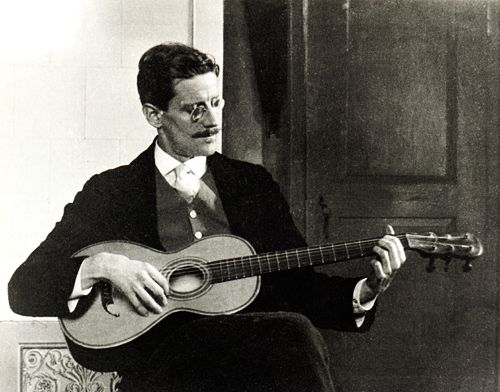|
|
Online Texts for Craig White's Literature Courses
|
|
|
from Daniel Defoe (lecture at Trieste 1912) by James Joyce (1882-1941) |
|
. . . [The English mind finds its epitome in] the manly independence, the unconscious cruelty, the persistence, the slow but effective intelligence, the sexual apathy, the practical and well-balanced religiosity, the calculating silence [of Robinson Crusoe] . . . .
The true symbol of the British conquest is Robinson Crusoe, cast away on a desert island, in his pocket a knife and a pipe, becomes an architect, a knife-grinder, an astronomer, a baker, a shipwright, a potter, a saddler, a farmer, a tailor, an umbrella-maker, and a clergyman. He is the true prototype of the British colonist, as Friday (the trusty savage who arrives on an unlucky day) is the symbol of the subject races. The whole Anglo-Saxon spirit is in Crusoe. . . . . [variant translation: [Crusoe] shipwrecked on a lonely island with a knife and a pipe in his pocket became architect, carpenter, knife-sharpener, baker, astronomer, shipbuilder, potter, farmer, saddle-maker, tailor, umbrella-maker, and clergyman.’] . . .
Seated at the bedside of a boy visionary [i.e., “Duncan Campbell”], gazing at his raised eyelids listing to his breathing, examining the position of his head, noting his fresh complexion, Defoe is the realist in the presence of the unknown, it is the experience of the man who struggles and conquers in the presence of a dream which he fears may fool him; he is, finally, the Anglo-Saxon in the presence of the Celt.’
![]()
![]()
—
[ ] x


